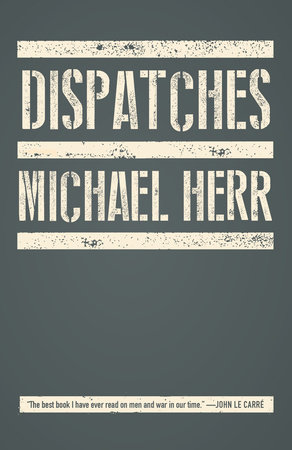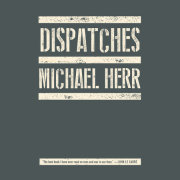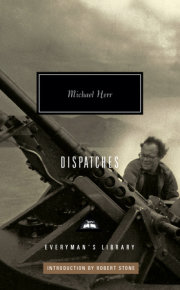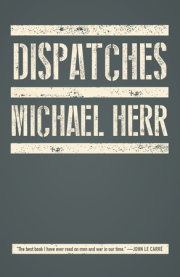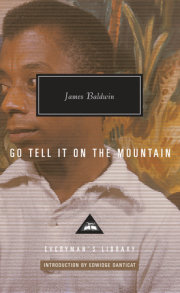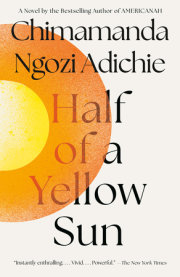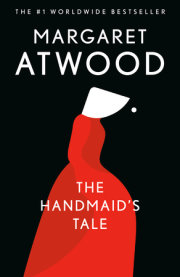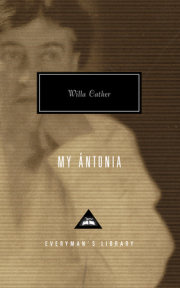Breathing In
There was a map of Vietnam on the wall of my apartment in Saigon and some nights, coming back late to the city, I’d lie out on my bed and look at it, too tired to do anything more than just get my boots off. That map was a marvel, especially now that it wasn’t real anymore. For one thing, it was very old. It had been left there years before by another tenant, probably a Frenchman, since the map had been made in Paris. The paper had buckled in its frame after years in the wet Saigon heat, laying a kind of veil over the countries it depicted. Vietnam was divided into its older territories of Tonkin, Annam and Cochin China, and to the west past Laos and Cambodge sat Siam, a kingdom. That’s old, I’d tell visitors, that’s a really old map.
If dead ground could come back and haunt you the way dead people do, they’d have been able to mark my map CURRENT and burn the ones they’d been using since ‘64, but count on it, nothing like that was going to happen. It was late ‘67 now, even the most detailed maps didn’t reveal much anymore; reading them was like trying to read the faces of the Vietnamese, and that was like trying to read the wind. We knew that the uses of most information were flexible, different pieces of ground told different stories to different people. We also knew that for years now there had been no country here but the war.
The Mission was always telling us about VC units being engaged and wiped out and then reappearing a month later in full strength, there was nothing very spooky about that, but when we went up against his terrain we usually took it definitively, and even if we didn’t keep it you could always see that we’d at least been there. At the end of my first week in-country I met an information officer in the headquarters of the 25th Division at Cu Chi who showed me on his map and then from his chopper what they’d done to the Ho Bo Woods, the vanished Ho Bo Woods, taken off by giant Rome plows and chemicals and long, slow fire, wasting hundreds of acres of cultivated plantation and wild forest alike, “denying the enemy valuable resources and cover.”
It had been part of his fob for nearly a year now to tell people about that operation; correspondents, touring congressmen, movie stars, corporation presidents, staff officers from half the armies in the world, and he still couldn’t get over it. It seemed to be keeping him young, his enthusiasm made you feel that even the letters he wrote home to his wife were full of it, it really showed what you could do if you had the know-how and the hardware. And if in the months following that operation incidences of enemy activity in the larger area of War Zone C had increased “significantly,” and American losses had doubled and then doubled again, none of it was happening in any damn Ho Bo Woods, you’d better believe it. . . .
I
Going out at night the medics gave you pills, Dexedrine breath like dead snakes kept too long in a jar. I never saw the need for them myself, a little contact or anything that even sounded like contact would give me more speed than I could bear. Whenever I heard something outside of our clenched little circle I’d practically flip, hoping to God that I wasn’t the only one who’d noticed it. A couple of rounds fired off in the dark a kilometer away and the Elephant would be there kneeling on my chest, sending me down into my boots for a breath. Once I thought I saw a light moving in the jungle and I caught myself just under a whisper saying, “I’m not ready for this, I’m not ready for this.” That’s when I decided to drop it and do something else with my nights. And I wasn’t going out like the night ambushers did, or the Lurps, long-range recon patrollers who did it night after night for weeks and months, creeping up on VC base camps or around moving columns of North Vietnamese. I was living too close to my bones as it was, all I had to do was accept it. Anyway, I’d save the pills for later, for Saigon and the awful depressions I always had there.
I knew one 4th Division Lurp who took his pills by the fistful, downs from the left pocket of his tiger suit and ups from the right, one to cut the trail for him and the other to send him down it. He told me that they cooled things out just right for him, that he could see that old jungle at night like he was looking at it through a starlight scope. “They sure give you the range,” he said.
This was his third tour. In 1965 he’d been the only survivor in a platoon of the Cav wiped out going into the la Drang Valley. In ‘66 he’d come back with the Special Forces and one morning after an ambush he’d hidden under the bodies of his team while the VC walked all around them with knives, making sure. They stripped the bodies of their gear, the berets too, and finally went away, laughing. After that, there was nothing left for him in the war except the Lurps.
“I just can’t hack it back in the World,” he said. He told me that after he’d come back home the last time he would sit in his room all day, and sometimes he’d stick a hunting rifle out the window, leading people and cars as they passed his house until the only feeling he was aware of was all up in the tip of that one finger. “It used to put my folks real uptight,” he said. But he put people uptight here too, even here.
“No man, I’m sorry, he’s just too crazy for me,” one of the men in his team said. “All’s you got to do is look in his eyes, that’s the whole fucking story right there.”
“Yeah, but you better do it quick,” someone else said. “I mean, you don’t want to let him catch you at it.”
But he always seemed to be watching for it, I think he slept with his eyes open, and I was afraid of him anyway. All I ever managed was one quick look in, and that was like looking at the floor of an ocean. He wore a gold earring and a headband torn from a piece of camouflage parachute material, and since nobody was about to tell him to get his hair cut it fell below his shoulders, covering a thick purple scar. Even at division he never went anywhere without at least a .45 and a knife, and he thought I was a freak because I wouldn’t carry a weapon.
“Didn’t you ever meet a reporter before?” I asked him.
“Tits on a bull,” he said. “Nothing personal.”
But what a story he told me, as one-pointed and resonant as any war story I ever heard, it took me a year to understand it:
“Patrol went up the mountain. One man came back. He died before he could tell us what happened.”
I waited for the rest, but it seemed not to be that kind of story; when I asked him what had happened he just looked like he felt sorry for me, fucked if he’d waste time telling stories to anyone dumb as I was.
His face was all painted up for night walking now like a bad hallucination, not like the painted faces I’d seen in San Francisco only a few weeks before, the other extreme of the same theater. In the coming hours he’d stand as faceless and quiet in the jungle as a fallen tree, and God help his opposite numbers unless they had at least half a squad along, he was a good killer, one of our best. The rest of his team were gathered outside the tent, set a little apart from the other division units, with its own Lurp-designated latrine and its own exclusive freeze-dry rations, three-star war food, the same chop they sold at Abercrombie & Fitch. The regular division troops would almost shy off the path when they passed the area on their way to and from the mess tent. No matter how toughened up they became in the war, they still looked innocent compared to the Lurps. When the team had grouped they walked in a file down the hill to the lz across the strip to the perimeter and into the treeline.
I never spoke to him again, but I saw him. When they came back in the next morning he had a prisoner with him, blindfolded and with his elbows bound sharply behind him. The Lurp area would definitely be off limits during the interrogation, and anyway, I was already down at the strip waiting for a helicopter to come and take me out of there.
“Hey what’re you guys, with the USO? Aw, we thought you was with the USO ‘cause your hair’s so long.” Page took the kid’s picture, I got the words down and Flynn laughed and told him we were the Rolling Stones. The three of us traveled around together for about a month that summer. At one lz the brigade chopper came in with a real foxtail hanging off the aerial, when the commander walked by us he almost took an infarction.
“Don’t you men salute officers?”
“We’re not men,” Page said. “We’re correspondents.”
When the commander heard that, he wanted to throw a spontaneous operation for us, crank up his whole brigade and get some people killed. We had to get out on the next chopper to keep him from going ahead with it, amazing what some of them would do for a little ink. Page liked to augment his field gear with freak paraphernalia, scarves and beads, plus he was English, guys would stare at him like he’d just come down off a wall on Mars. Sean Flynn could look more incredibly beautiful than even his father, Errol, had thirty years before as Captain Blood, but sometimes he looked more like Artaud coming out of some heavy heart-of-darkness trip, overloaded on the information, the input! The input! He’d give off a bad sweat and sit for hours, combing his mustache through with the saw blade of his Swiss Army knife. We packed grass and tape: Have You Seen Your Mother Baby Standing in the Shadows, Best of the Animals, Strange Days, Purple Haze, Archie Bell and the Drells, “C’mon now everybody, do the Tighten Up. . . .” Once in a while we’d catch a chopper straight into one of the lower hells, but it was a quiet time in the war, mostly it was lz’s and camps, grunts hanging around, faces, stories.
“Best way’s to just keep moving,” one of them told us. “Just keep moving, stay in motion, you know what I’m saying?”
We knew. He was a moving-target-survivor subscriber, a true child of the war, because except for the rare times when you were pinned or stranded the system was geared to keep you mobile, if that was what you thought you wanted. As a technique for staying alive it seemed to make as much sense as anything, given naturally that you were there to begin with and wanted to see it close; it started out sound and straight but it formed a cone as it progressed, because the more you moved the more you saw, the more you saw the more besides death and mutilation you risked, and the more you risked of that the more you would have to let go of one day as a “survivor.” Some of us moved around the war like crazy people until we couldn’t see which way the run was even taking us anymore, only the war all over its surface with occasional, unexpected penetration. As long as we could have choppers like taxis it took real exhaustion or depression near shock or a dozen pipes of opium to keep us even apparently quiet, we’d still be running around inside our skins like something was after us, ha ha, La Vida Loca.
In the months after I got back the hundreds of helicopters I’d flown in began to draw together until they’d formed a collective meta-chopper, and in my mind it was the sexiest thing going; saver-destroyer, provider-waster, right hand-left hand, nimble, fluent, canny and human; hot steel, grease, jungle-saturated canvas webbing, sweat cooling and warming up again, cassette rock and roll in one ear and door-gun fire in the other, fuel, heat, vitality and death, death itself, hardly an intruder. Men on the crews would say that once you’d carried a dead person he would always be there, riding with you. Like all combat people they were incredibly superstitious and invariably self-dramatic, but it was (I knew) unbearably true that close exposure to the dead sensitized you to the force of their presence and made for long reverberations; long. Some people were so delicate that one look was enough to wipe them away, but even bone-dumb grunts seemed to feel that something weird and extra was happening to them.
Helicopters and people jumping out of helicopters, people so in love they’d run to get on even when there wasn’t any pressure. Choppers rising straight out of small cleared jungle spaces, wobbling down onto city rooftops, cartons of rations and ammunition thrown off, dead and wounded loaded on. Sometimes they were so plentiful and loose that you could touch down at five or six places in a day, look around, hear the talk, catch the next one out. There were installations as big as cities with 30,000 citizens, once we dropped in to feed supply to one man. God knows what kind of Lord Jim phoenix numbers he was doing in there, all he said to me was, “You didn’t see a thing, right Chief? You weren’t even here.” There were posh fat air-conditioned camps like comfortable middle-class scenes with the violence tacit, “far away”; camps named for commanders’ wives, LZ Thelma, LZ Betty Lou; number-named hilltops in trouble where I didn’t want to stay; trail, paddy, swamp, deep hairy bush, scrub, swale, village, even city, where the ground couldn’t drink up what the action spilled, it made you careful where you walked.
Sometimes the chopper you were riding in would top a hill and all the ground in front of you as far as the next hill would be charred and pitted and still smoking, and something between your chest and your stomach would turn over. Frail gray smoke where they’d burned off the rice fields around a free-strike zone, brilliant white smoke from phosphorus (“Willy Peter/Make you a buh liever”), deep black smoke from ‘palm, they said that if you stood at the base of a column of napalm smoke it would suck the air right out of your lungs. Once we fanned over a little ville that had just been airstruck and the words of a song by Wingy Manone that I’d heard when I was a few years old snapped into my head, “Stop the War, These Cats Is Killing Themselves.” Then we dropped, hovered, settled down into purple lz smoke, dozens of children broke from their hootches to run in toward the focus of our landing, the pilot laughing and saying, “Vietnam, man. Bomb ‘em and feed ‘em, bomb ‘em and feed ‘em.”
Flying over jungle was almost pure pleasure, doing it on foot was nearly all pain. I never belonged in there. Maybe it really was what its people had always called it, Beyond; at the very least it was serious, I gave up things to it I probably never got back. (“Aw, jungle’s okay. If you know her you can live in her real good, if you don’t she’ll take you down in an hour. Under.”) Once in some thick jungle corner with some grunts standing around, a correspondent said, “Gee, you must really see some beautiful sunsets in here,” and they almost pissed themselves laughing. But you could fly up and into hot tropic sunsets that would change the way you thought about light forever. You could also fly out of places that were so grim they turned to black and white in your head five minutes after you’d gone.
Copyright © 1968 by Michael Herr. All rights reserved. No part of this excerpt may be reproduced or reprinted without permission in writing from the publisher.

